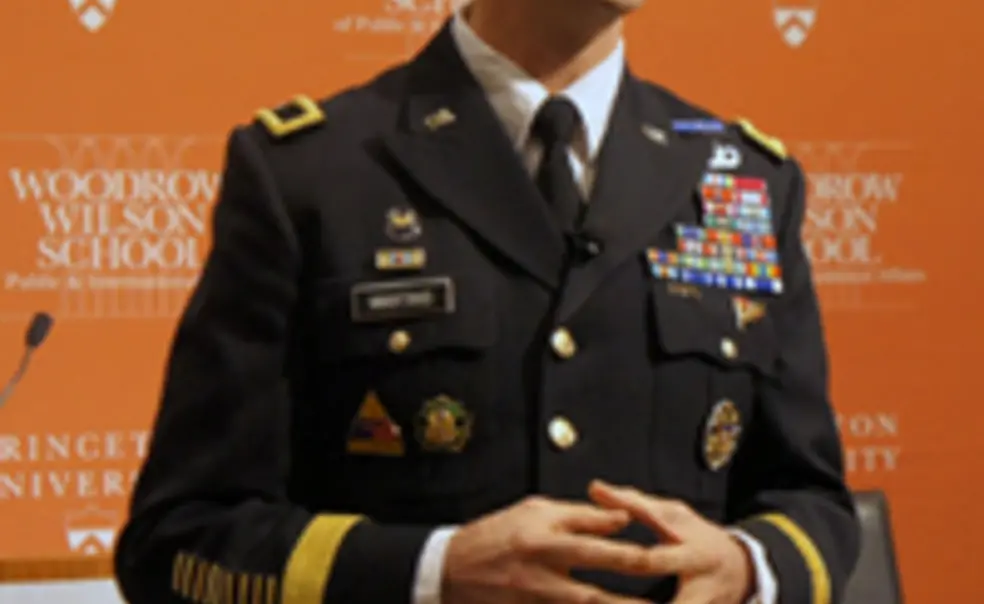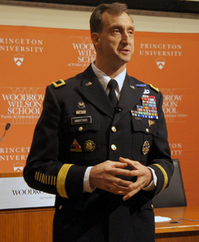Terrorism prosecutor Martins emphasizes 'justice, rather than vengeance'
Military commissions are necessary judicial institutions, Chief Prosecutor of U.S. Military Commissions Brig. Gen. Mark Martins said in a Feb. 27 lecture at the Woodrow Wilson School.
Martins, the chief prosecutor for the trial of Khalid Sheikh Mohammed and four other accused perpetrators of the Sept. 11 attacks, emphasized that in contrast to civilian courts, military commissions have a different standard of evidence and jury composition, which are essential for dealing with cases related to armed conflict. However, Martins added that new forms of conflict, such as terrorism, blur the lines between civilian and war crimes.
“The nature of the threat is that something can be regarded both as a violation of the law of war — a war crime — and a violation of the domestic law. Those are not mutually exclusive categories, and that’s where the controversy of how you’re regarding this challenge comes in,” Martins said.
Martins pointed out that one difference of military commissions is in allowing hearsay evidence, prompting Director of the Program in Law and Public Affairs Kim Lane Scheppele to ask what that implies for evidence gathered through coercion.
“The hearsay rule in Anglo-American jurisprudence is the way that we screen out torture,” Scheppele said, “so when the hearsay rule is relaxed, it’s hitting the front line in the American system or the English system, the barrier that keeps out evidence collected by torture or by coercion.”
Martins replied that any evidence must first pass strict Supreme Court standards and that information regarding how the evidence was gathered must be disclosed.
“If you’re going to have a subsequent statement from anyone who was subjected to coercion… the distance in time, the identity of the questioners, the location, the indication of a weapon, the declaration of whether the person’s will was overborne — the totality of the circumstances has to lead the judge to say this is a voluntary statement,” Martins said.
Martins also addressed criticisms that military courts are “unfair, unsettled, unknown, unbounded, unnecessary, and un-American.”
“If you were to transport the 21 Nazi defendants in the docket during Nuremberg in 1945 and transport them magically to Guantanamo today, they would be astonished at their rights, privileges, and entitlements,” Martins said. “That’s how it should be, but it provides a little bit of perspective on the notion that [the commissions] are unfair.”
Despite the differences between civilian and military courts, Martins said that both institutions pursue the goal of justice.
Quoting Robert Jackson, prosecutor at the Nuremberg Trials, Martins said, “ ‘That four great nations, flush with victory and stung with injury, stayed the hand of vengeance and voluntarily submitted their captive enemies to the judgment of the law is one of the most significant tributes power has ever paid to reason.’ My project in that case and in any other is that we have to do justice, rather than vengeance, and that power has got to pay tribute to reason.”













No responses yet